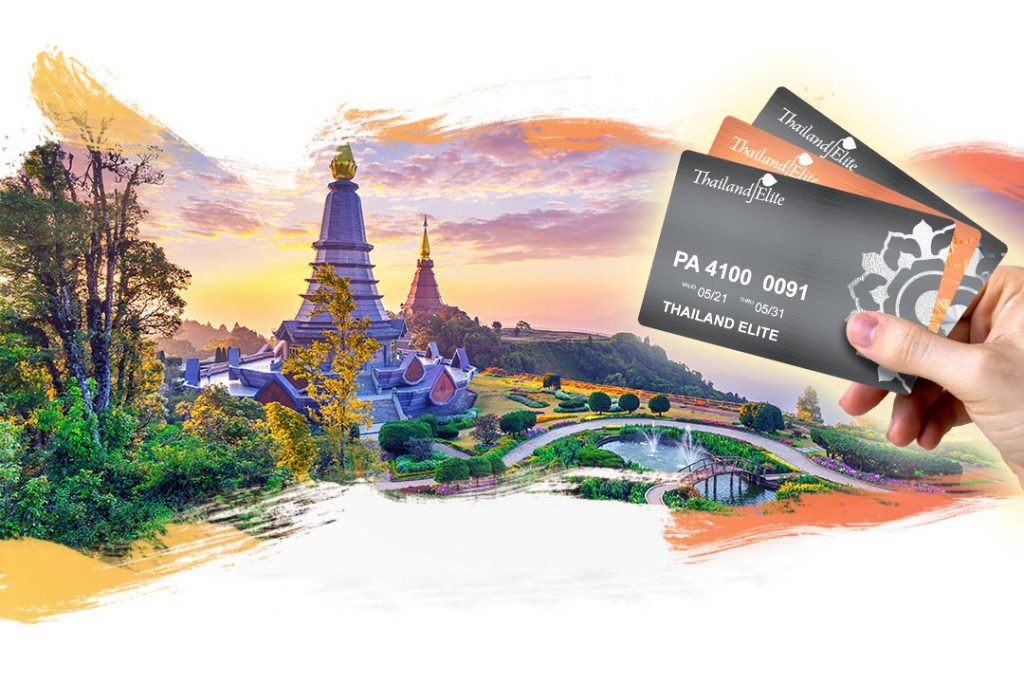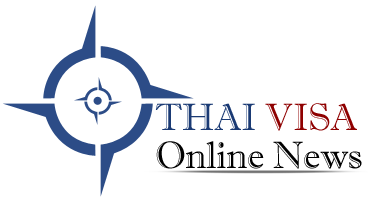Home

About Thai Visa News
Created in 2011, ThaiVisa News provides immigration information, immigration news, and travel guide and updates for people wishing to visit Thailand. The gateway to detailed information and requirements about Thai Visa application, whether researching travel opportunities, seeking information on travel restrictions, or looking for advice and assistance on how to move into Thailand. The comprehensive information of this website means that all answers to your immigration questions are at your fingertips.
Latest News


Thai Retirement visa holders who decided to move to Thailand and live on permanent basis may bring their personal effects and household goods duty free from their home countries. After permit to stay for a year in Thailand has been granted, belongings will not be taxed. Exemption to required taxes and duties for shipping these household goods from another country into Thailand only applies to second-hand or used merchandises. Second-hand items include things used by the retiree importers at their former country of residence. Brand new household goods shipped in Thailand are subjected to the necessary taxes and tariff provided by law which is 20% import duty plus 7% value-added tax.
The origin of shipment should be the same as the origin of the importer. For example, if the owner of the household goods being transported into Thailand used to live in UK, UK is regarded as their place of origin; thus the household goods they are bringing in should have also originated from UK.
Retirement visa holders may bring household items from their home countries within a six-month period from the date of entry to Thailand. The household goods and merchandise are not allowed to be shipped before the arrival of the importers, nor six months after. If your personal items are due to arrive in Thailand more than six months after the entry date, you should inform Thai Customs about this at least two months before the six-month deadline.
The import of electrical devices such as used electrical machines or appliances like air conditioners, television sets or microwave ovens shall be limited to one unit only. Thus, if the importer brings in more than one unit, then the excess shall be subjected to taxes and duties. Exception to this one-unit rule applies if the importer is a whole family. A whole family planning on changing residence and moving to Thailand permanently will be given the privilege of bringing into the country two units of each item. Any unit in excess of this two-piece limit is already taxable. During an excess, Custom officials may levy a lower rate since the importer is a whole family.
Documents Needed:
You will need your passport, retirement visa for Thailand, inventory list showing the brand name, model & serial numbers, and your shipping documents. It will be helpful to have the original sales receipt of all the electronics items. When the shipment arrives the Thai Custom official will ask to see your original passport. Typically the shipping company that you use will coordinate with the Thai Customs officials in clearing your household goods through the customs process.
Clearance Procedures:
- The importer submits documents for inspection at the Customs Department/port of entry.
- Customs officials complete importation forms, determine eligibility, and assess duties, if any.
- Importation forms are returned to the importer bringing goods into the country, who then takes them to be recorded and pay customs duties, if any.
- The importer collects items from the port of entry.


This would discuss the gray areas on Thai Work Permit, Internet-based work or business, voluntary declaration of income and taxes to Thailand.
Scenario 1:I am considering moving to Thailand and living there for about a year. The visa is not the problem, the problem however is how I make money. I work completely over the computer, and make a living that way. I don't have any employees and do not make enough money to employ any. I read that in order for me to have this business that I must hire people? Like if I were to live in Thailand, would me having this business be illegal? How does it work? I cannot seem to find any clear cut answers defining internet income. Please, can you help?
Scenario 2:I work offshore in the Oil & Gas industry. They make new contract every time they need me for a job. This means I work on a casual contract basis, with contracts lasting about 30-40 days (the duration of each single job). On average, I work offshore 40 days, then I come back to Thailand for 3-4 weeks of vacation, then I go back to work, and so on. I use to enter in Thailand as a tourist at the moment. What I would like to do, is to open a bank account in Thailand, getting paid by my company on this account, and then declare my income and pay taxes to Thai authorities. If I need to apply for a visa too, that would be ok for me.

On the first scenario, it was stated that he is earning money and getting paid by working online. He could work wherever he want, and whenever he want because it is an internet-based work or business, and he chose to stay in Thailand. Several issues were raised, namely: 1.) Is the solely employed internet-based work legal in Thailand? 2.) In operating an internet-based business in Thailand, does it necessarily need to employ people? 3.) Does he need a work permit? 4.) Does he need to pay income tax to the Revenue Department in Thailand?
On the second scenario, it was clearly defined that the source of income is offshore, he is working offshore, but he prefers to stay in Thailand under tourist visa. He wants to open a bank account, and declare his income and voluntary pay taxes in Thailand. He also wants to know if he can apply for a different visa, since he is currently on tourist visa. Different issues were identified such as: 1.) If he is technically working offshore and the source of income is offshore, can he declare his income in Thailand and voluntarily pay taxes to Thai authorities? 2.) Under tourist visa, can he open a bank account in Thailand? 3.) What would be the alternative type of visa for him if he wishes to stay longer in Thailand?
Working in Thailand
A foreigner will only be allowed to work in Thailand if he has met the following:
- he has a valid visa;
- he has a valid work permit issued by the Department of Employment, Ministry of Labor;
- he is employed in an occupation that does not violate the Alien Employment Act
Under the Working of Alien Act, B.E. 2551, "work" is defined as "physical and mental activities, whether or not for wages or other form of compensation. Even volunteer or charity work requires a work permit in Thailand."
Thus, for the question “would a foreigner engaging in an internet-based work conducted in Thailand requires a work permit?” affirms that any cloud based income generating activity is considered as a work under the Alien Employment Act. Thus, any foreigner engaging Internet-Based work or Business conducted in Thailand requires a work permit. This is true even though the income is from abroad, or that the job has no physical office location in Thailand.
If you are conducting a business in Thailand in this similar kind, it is necessary to register the company if you wish it to operate legally. Employing people, especially foreigners necessitate for the company to be legally registered. Work permit processing for foreign employees would need the corporate documents.
If you have been reported working on the internet without a work permit, you are subject to illegal activities such as providing services/engaging work without a permit. Work permit violation is a criminal offense and penalties include imprisonment of not exceeding 5 years or a fine from 2,000 THB to 100,000 THB, or both. A company or employer that hires a foreigner without a valid work permit is subject to a fine from 10,000 THB to 100,000 THB for each foreign worker/employee.
Thai Tax System
Does he need to pay income tax to the Revenue Department in Thailand?
Since he is a foreign national living in Thailand and generates his income by working in Thailand, he is subjected to pay personal income tax, even if the work he does is internet-based. Remember that he is physically located in Thailand and he is exerting energy and using knowledge of which under Alien Employment Act, quantifies work. He does work, and is liable to pay tax. Take note, that the ability to pay tax requires to have the right kind of visa and a work permit.
When does a foreigner NOT subjected to pay income tax? Only on the following cases a foreigner is not liable to pay income tax:
- A foreign national who stay in Thailand for in a tourist visa spending his own savings
- A retired person with a pension from overseas
Generating income by rendering service or knowledge in Thailand, you are subjected to personal income tax, even if the work you do is for clients based outside Thailand, or the work is internet-based.
Who are considered as taxable person then? Any person residing in Thailand for a period or periods aggregating more than 180 days in any tax (calendar) year (also referred to as resident of Thailand) is liable to pay tax on income from sources in Thailand on a cash basis, regardless where the money is paid, as well as on the portion of income from foreign sources that is brought into Thailand.
A non-resident (person residing in Thailand less than 180 days) however, is subjected to tax only on income from sources in Thailand.
Opening a bank account in Thailand would require a long term visa (such as non-immigrant visa). Most banks in Thailand won't allow opening an account on tourist visa.
On the 2nd Scenario, alternative type of visa for him could be Non-Immigrant Visa or Retirement Visa (if he is more than 50 years old).
If your income has been earned outside Thailand, you can’t declare your income and pay your taxes here.
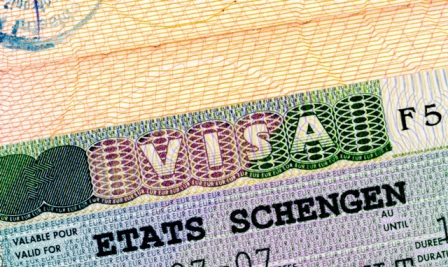
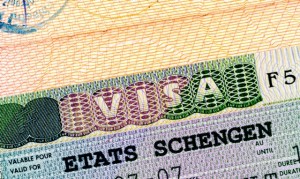 Schengen Visa from Thailand[/caption]
Schengen Visa from Thailand[/caption]Schengen Visa is a unified visa system which can be used to enter European Union states who signed for Schengen Agreement. The foreigner needs a single visa to visit any countries under the Schengen area. United Kingdom and Ireland are exempted in Schengen Visa; visiting these two countries require a separate visa. If you wish to travel to Europe, Schengen visa would allow you to explore for maximum of 90 days any of the European countries which are part of the Schengen Agreement. Usual destinations include Germany, Portugal, Holland, France, Italy, and Spain. Traveling in Europe allows a tourist to explore not just the famous landmarks and tourist spots, but also its rich historical background and cultural heritage.
To apply for a Schengen Visa in Thailand, you have to submit the following requirements and supporting evidences for your visa application:
- Visa application form
- Valid passport
- Most recent photograph
- Proof of financial capacity which may include bank statement, property certificate
- Proof of travel arrangements and accommodations like airline ticket, itinerary, hotel booking
- Health and travel insurance
- If employed: certificate of employment and income statement
- If you have a sponsor for your trip: invitation letter from sponsor (official sponsorship declaration)
The visa applicant must first decide which Schengen country is the main destination, or where he would stay the longest. If the main destination cannot be decided, he could file the application at the Embassy or Consulate of the Schengen country of first entry (first destination in Europe).
Once the country has been decided, the applicant should complete the documents supporting the purpose and conditions of the stay in the Schengen Area. At the completion of the requirements, go to the embassy or consulate in Thailand and submit all the documents for application. Then pay for the visa processing fee which is currently 60 GBP or approximately THB 3,000.
Best date to apply for a visa would be at least 6 weeks before the proposed date of departure. After submission, the applicant should wait for the visa approval. Visa processing time usually takes 4-5 business days, though it may be longer depending on the applicant's circumstance.
Siam Legal's assistance increases your rate of approval for your Schengen Visa application.

ASEAN nations (Association of Southeast Asian  Nations) pilot a free regional labor market for skilled workers and professionals which will be starting on 2015. It means that there will be a free movement of labor and workers among member countries of which the following countries are included: Malaysia, Indonesia, Thailand, Myanmar, Cambodia, Singapore, Laos, Philippines, Brunei, and Vietnam.
Nations) pilot a free regional labor market for skilled workers and professionals which will be starting on 2015. It means that there will be a free movement of labor and workers among member countries of which the following countries are included: Malaysia, Indonesia, Thailand, Myanmar, Cambodia, Singapore, Laos, Philippines, Brunei, and Vietnam.
As part of the implementation of ASEAN Economic Community (AEC) to form a cohesive Asian Community, the member countries’ skilled labor will soon be allowed to move freely across each members’ country. This will open up free flow of investment, capital and skilled labor to provide deeper regional economic integration.
One of the goals of ASEAN 2015 would be a healthy and transparent labor market thus hitting a mark on globalizing trend. As there would be a good inflow and outflow of workers, we will be able to attract the best domestic talent; the competitiveness will increase job performance and working skills. English language and computer usage will be a must, thus will be developed.
As of now, AEC focus on the following professions such as medicine, dentistry, nursing, engineering, architecture, accounting, natural resources, and geographical exploration. Eventually it will cover other fields and other levels of job not mentioned above.
As there would be movement of workers into and out of the  country, there would be more opportunities to work abroad. This will raise the quality of domestic labor. It will also open more opportunity for trade, investment, employment, new knowledge and advance technology. Thus it will be a good opportunity to set-up business in Thailand. Sectors such as training institutions, enterprises and workers will gear up and stay competitive; thus allowing the regional labor market to be more integrated and more qualified. With those professions mentioned above, the license, diplomas, certificate and experienced granted in another country will be recognized. Effective AEC economic activities among member countries could result to expansion of market and production, thus creating more employment opportunities. Zero tariffs on Southeast Asian market come along with AEC, so foreign investment is expected to flow.
country, there would be more opportunities to work abroad. This will raise the quality of domestic labor. It will also open more opportunity for trade, investment, employment, new knowledge and advance technology. Thus it will be a good opportunity to set-up business in Thailand. Sectors such as training institutions, enterprises and workers will gear up and stay competitive; thus allowing the regional labor market to be more integrated and more qualified. With those professions mentioned above, the license, diplomas, certificate and experienced granted in another country will be recognized. Effective AEC economic activities among member countries could result to expansion of market and production, thus creating more employment opportunities. Zero tariffs on Southeast Asian market come along with AEC, so foreign investment is expected to flow.
It has its own disadvantage. First would be strong competition. In the liberalization of the Southeast Asian economy each will be competing against each other in the level of communication skills, working standards, and many other criteria set to find the fittest of those qualities. Poor English skills will be disadvantaged, so as those will low productivity. Thus it sounds again more like survival of the fittest.
Issues like migrant labor exploitation may arise. Challenges like allowing huge flows of workers in rich countries like Singapore may not be feasible. There could be a shortage of highly-skilled laborer in his home country. Concerns with regards to language barrier and communication skills have been identified like extreme shortage of natives speaking foreign language (English), and this disintegration of language skills will result to difficulty in accessing new knowledge. We have to consider factors limiting the labor mobility such as language, new loans, and family adjustments.
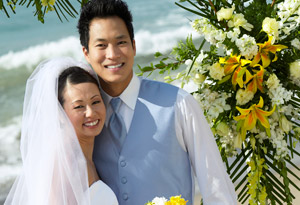
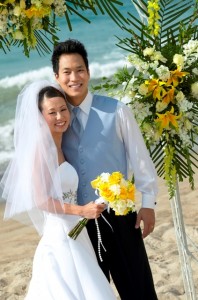
As marriage is one of the milestones in a person's life it must be held and celebrated in the best way the couple prefers it to be- from choosing the place of marriage, location, or marriage theme. The couple may tailor-fit it in accordance to one's culture, tradition or religion.
By choosing to marry in Thailand there are rites, rituals and intricacies of a traditional Thai wedding ceremony. On its legal aspect, marriage in Thailand involves following the Thailand law and marriage court rules. Marriage registration in Thailand is actually the process of registering the marriage at a Register Office.
Marriage in Thailand includes the following requirements: Both parties need to be at least seventeen years of age(for Thai national), for foreigners who want to marry in Thailand, the eligible age would depend on their country's rule of marriageable age. Take note that this could vary depending on nationality; the person should not be insane or otherwise mentally incapacitated; the couple should not have the same adoptive parents; they should not have blood relations; and they must not have a spouse at the time they marry in Thailand.
In addition to this, there are documents required to submit in order to marry in Thailand. Getting all of these documents ready including the House Registration Certificate in the case of Thai nationals, proof of previous divorce or death of spouse, and affidavits from embassy, as well as translated copies of affidavits approved by the Foreign Ministry take time and effort to prepare. A reputable law firm in Thailand could assist you in the preparation of these documents and communicating with the different government agencies involved. The documents required for each marriage application vary depending on whether you are a Thai national or a foreigner, what nationality you have or what passport you do hold.
A good law firm in Thailand will provide you information and basic marriage registration procedure, thus allowing yourself and your to-be spouse enough time to arrange for all of these documents before you come to Thailand and marry. Knowing the correct information will save you time and effort and avoid denial of your marriage registration application due to incomplete documents. Retaining the service of a law firm will assure you stress-free marriage preparation.
You may also consider preparing prenuptial agreements or other management of property and assets before you plan to marry in Thailand. Thai lawyer or a law firm in Thailand could assist you with this.
Once all the documents are ready, you can do the actual registration process with the District Office. The couple will be required to give consent to take each other as spouse in front of the registrar by giving their signatures, verbal consent and written declarations.
You can make your marriage in Thailand easy, organized and less stressful giving you more time to enjoy the wonderful attractions in Thailand with your partner while getting the wedding of your dreams.
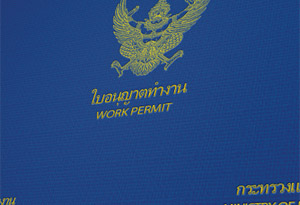

Working-sector expats move to Thailand both for leisure and work. Thailand's growing economy, purchasing power parity, low cost of living and laid-back lifestyle appeals to a lot of expats. But a foreigner who wishes to come and live in Thailand seeks to earn a living. The first thing most expatriates wish to know is how to find a job in Thailand.
While the availability of jobs in Thailand for foreigners is limited, working legally in Thailand also requires issuance of a valid work permit. Thai work permit gives authority to the holder to work in Thailand. So when considering a job offer or a potential job employment, even on top of housing, travel, medical insurance, salary package and remuneration benefits the most important thing a foreigner needs to consider is whether or not the potential employer would provide a work permit. Also, there is a provision for the kind of jobs available for expats. An expat can only perform jobs that are not currently listed under prohibited occupations in Thailand for foreigners.In Thailand, foreigners are allowed to land in jobs such as teaching English, translator, actor or model, dive instructor, professional position such as accountant, engineer, salesman, lawyer, executives, or even running his/her own business.
Working in Thailand and securing a work permit is not easy. There is a restriction of the issuance of a work permit. If not deemed as necessary, if Thai local can do the job, there is no reason for the organization to hire an expat. Also, the difficulty of securing a work permit arises in meeting the set ratio of the number of Thai locals versus the number of expats working in an organization. There is the challenge for the company of not meeting the requirements set by the Ministry of Labor for the approval of work permit application.
In addition to this, the work permit is good only for a particular job for which it was issued within the geographic limitations specified in the work permit. Working in a position or at a location other than that specifically approved is grounds for termination of your permit. You may hold more than one position with one or more employers but you must obtain permission for each position and for each employer. Generally, the permission for each position is entered in the original work permit record.
To be eligible for processing a work permit, the foreigner needs to secure first a Non-Immigrant "B" Visa. Once non-immigrant visa has been received, he may then apply for a Thailand work permit. If submitted correctly with complete documents an application can be processed in 10 days. Work permit is applied at the nearest Provincial Department of Employment Office.
Required Documents
Ministry of Labor requires the following documents to be submitted in processing of the work permit:
- signed copy of every page of the passport,
- non-immigrant visa,
- transcript of records authenticated at the embassy of the foreigner's country,
- resume,
- embarkation card,
- health certificate,
- passport-size photo,
- marriage certificate (if applicable).
If you are married to a Thai national, aside from the marriage certificate, spouse’s identity card, birth certificates of children, household registration certificate must be presented. If you are applying for a position previously held by another foreigner, a photocopy of your predecessor’s work permit, together with his/her notice of resignation from the company or a letter confirming his/her intended date of departure must be included.
Validity
The work permit is valid as long as your visa allows you to remain in Thailand. When the foreigner resigns from work, they are also required to return the work permit within seven (7) days from the date of resignation. And if the foreigner changes the nature of his or her employment or his or her employer, they must secure a new work permit.
Exemptions
Exceptions to the Alien Employment Act permit foreigners to perform work without a permit if it is deemed necessary and urgent which can be completed within 15 days. However, the Department of Employment must be informed before such work begins.
Violations
There is a legal consequence if work permit has been violated. Working without a valid work permit is a criminal offense. Penalties include imprisonment of not exceeding 5 years or a fine from 2,000 THB to 100,000 THB, or both. In the case you agree to travel out of Thailand within the period of time prescribed by the interrogating officer, which must not be later than 30 days, the interrogating officer may impose a fine and make arrangements for you to travel out of Thailand. Foreigners who do work reserved solely for Thais will be fined of up to 20,000 THB. A company or employer that hires a foreigner without a valid work permit is subject to a fine from 10,000 THB to 100,000 THB for each foreign worker/employee.
Work permit must be carried all the time especially during work-related activities. Be prepared to show it upon immigration check.
Thai Elite Visa
Thailand Elite visa is a special visa aimed for high networth businessmen, digital nomads, retirees, investors, high income individuals, and families looking to move in to Thailand. The Elite member or card holder has special privileges such as VIP treatment at the airport, exclusive spa and golf courses, special discount at major department stores and shopping malls, elite personal assistance, and many more. To learn more if Thailand Elite Visa is the most suitable long term visa for you, just click the link below.
